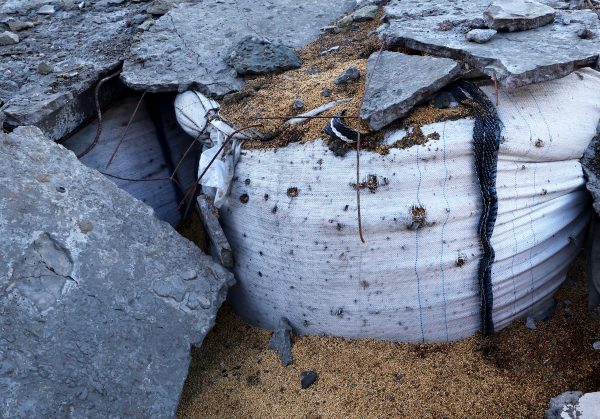Historical memory in India will not easily forget the callousness of Winston Churchill, who declined to intervene in what was then British India to save lives so as not to divert resources from prosecuting the Second World War. It’s a sobering reminder that a geopolitical breakdown doesn’t just lead to appalling violence — it often means a disruption to global markets that can have deadly consequences for the world’s poorest.
Twelve months ago, it looked entirely possible that the world would see widespread famine to rival those of the mid-20th century, as the Russian invasion of Ukraine knocked one of the world’s largest grain exporters out of the picture. Food prices reacted to the shock quickly, putting further pressure on the livelihoods of poor households in low– and middle–income countries that had already had to endure great hardship during the COVID-19 pandemic.
With turbulence in the fertiliser market, there was a perfect storm — Russia was the world’s biggest supplier of nitrogenous, potassium and phosphorus fertilisers. Not only this, but the skyrocketing cost of gas meant that other fertiliser producers in Europe and elsewhere could no longer afford to keep their factories running. Prices for most fertilisers had risen precipitously even prior to the outbreak of war and have come down considerably since they peaked last year, but they still remain considerably higher than they were before 2020.
Though the worst of the predictions did not come to pass, world hunger increased dramatically in 2022. This year, the number of people in a state of food insecurity will be more than double the number in early 2020, and nearly one million people worldwide are living in famine conditions.
This is undeniably a tragedy, but it could have been much worse. This is in part luck — record wheat crops in Australia, for example, have helped plug the hole left by diminished Ukrainian and Russian exports — but it was also partly due to skilled diplomatic work to ensure that markets were kept open. Thanks to the Black Sea Grain Initiative, negotiated by the United Nations and Turkey, tens of millions of tons of grain have been exported that otherwise might have rotted in Ukrainian ports.
Food crises are made worse by panic, as those who can, hoard, and those who cannot, go without. Without global food reserves, that’s a natural reaction to perceptions of food shortage. They are also aggravated by incomplete or inaccurate information, which again leads to unnecessary panic and stockpiling. Here there is no substitute for global cooperation — much as in a bank run, each individual country has an incentive to build its own reserves if it thinks there will not be enough grain to go around and in so doing, makes the shortage a self-fulfilling prophecy.
As Peter Timmer points out in this week’s lead article, Indonesia has become deft at global food politics, stemming from the experience of the 2008 food price crisis. It was fortunate that Indonesia held the G20 presidency last year, allowing it to craft a leader’s declaration that put food security front and centre. Though protectionist measures implemented in response to the food crisis — not least Indonesia’s short-lived ban on crude palm oil exports — had the potential to make matters worse, in general markets have remained open.
This is not to say that the crisis has passed. Fertiliser prices may have come down, but price shocks tend to take a year or so to filter through to food prices. The war in Ukraine is intensifying again and, as we saw in October last year when the Russian fleet was attacked by drones in Sevastopol, Moscow might once again try to upend world food markets by abandoning its commitment to allowing Black Sea grain shipping lanes to remain open. Climate change is already making harvest failures more pronounced and a bad series of harvests could once again wreak havoc.
As Timmer argues, it is important to get institutions to work to ensure that if there are unexpected spikes in world food prices, global responses can be coordinated and efficient. Above all, existing systems of information-sharing need to be strengthened to encourage countries to provide timely and complete data: ‘When domestic grain stock is considered a state secret — as with China — or a matter of national food security — as with India — there are no mechanisms to enforce cooperation.’
As the world’s economic steering committee, the G20 is the natural forum for discussions on strengthening global food security and as 2023 G20 chair, India is in a position and has the incentive, given its own precarious food security circumstance, to continue Indonesia’s good work. ‘As ASEAN’s experience since 2008 shows,’ Timmer reminds us, ‘such forums can help countries avoid panic in the face of turbulent world grain markets.’
The EAF Editorial Board is located in the Crawford School of Public Policy, College of Asia and the Pacific, The Australian National University.

